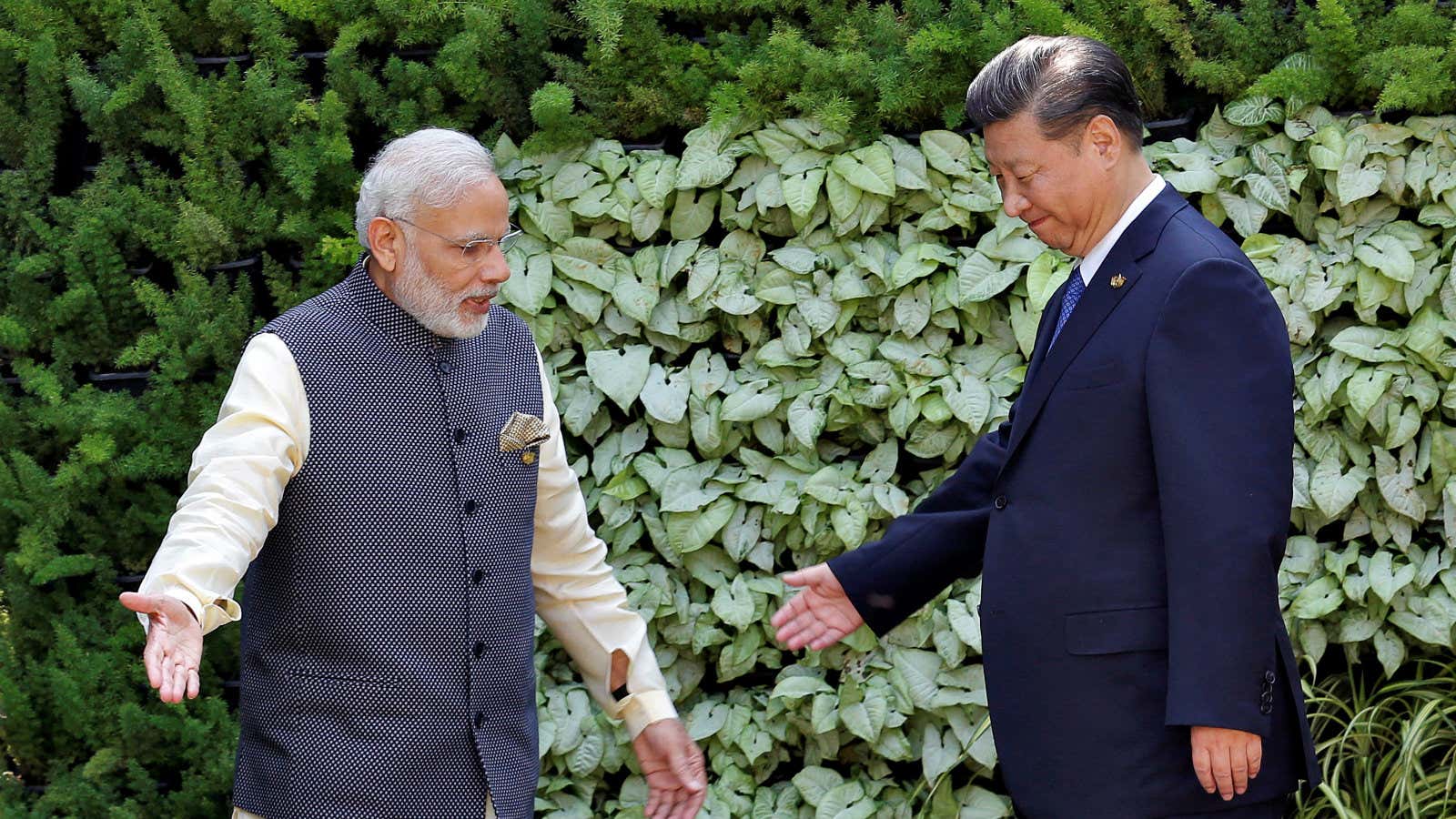The boom in the Indian economy is here to stay—at least for nearly a decade.
While its GDP is estimated to grow at 7.72% till 2025, China’s will lag at 4.41%, a Harvard study says.
“The economic pole of global growth has moved over the past few years from China to neighbouring India, where it is likely to stay over the coming decade,” according to growth projections from Harvard University’s Center for International Development (CID). The only other country to grow faster would be Uganda at 7.73%.
The research has attributed India’s prospects to its potential to diversify into newer areas of production and export. The country has been diversifying its export base to include products from other sectors, such as chemicals, vehicles, and certain electronics.
“The major oil economies are experiencing the pitfalls of their reliance on one resource,” said Ricardo Hausmann, director of CID, professor at the Harvard Kennedy School (HKS), and the lead researcher of The Atlas of Economic Complexity. “India, Indonesia, and Vietnam have accumulated new capabilities that allow for more diverse and more complex production that predicts faster growth in the coming years.”
The Harvard report points out that a country could grow faster than the others if the technical know-how required to produce modern and more sophisticated products increases.
“Economic complexity…captures the diversity and sophistication of the productive capabilities embedded in its (the country’s) exports and the ease with which it could further diversify by expanding those capabilities,” explained the report.
Even though China ranks better than India in economic complexity, it fell four spots to land at 23. Meanwhile, at 46, India is more diverse in it political, institutional, geographic, and demographic dimensions. This gives it more room to diversify into newer and more complex products, the report stated. Here is a look at the Economic Complexity Index (ECI) that forms the basis of the growth projections.
